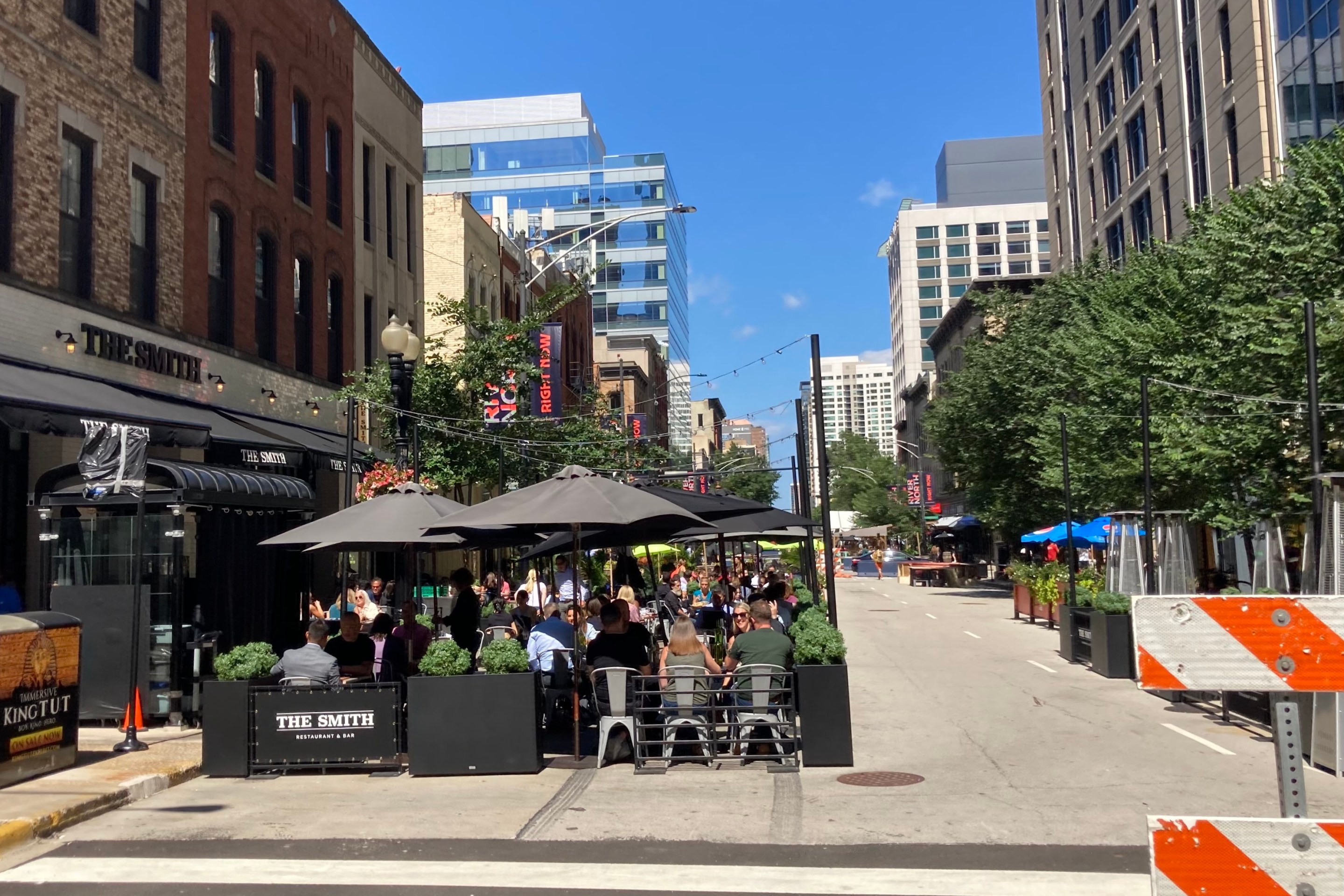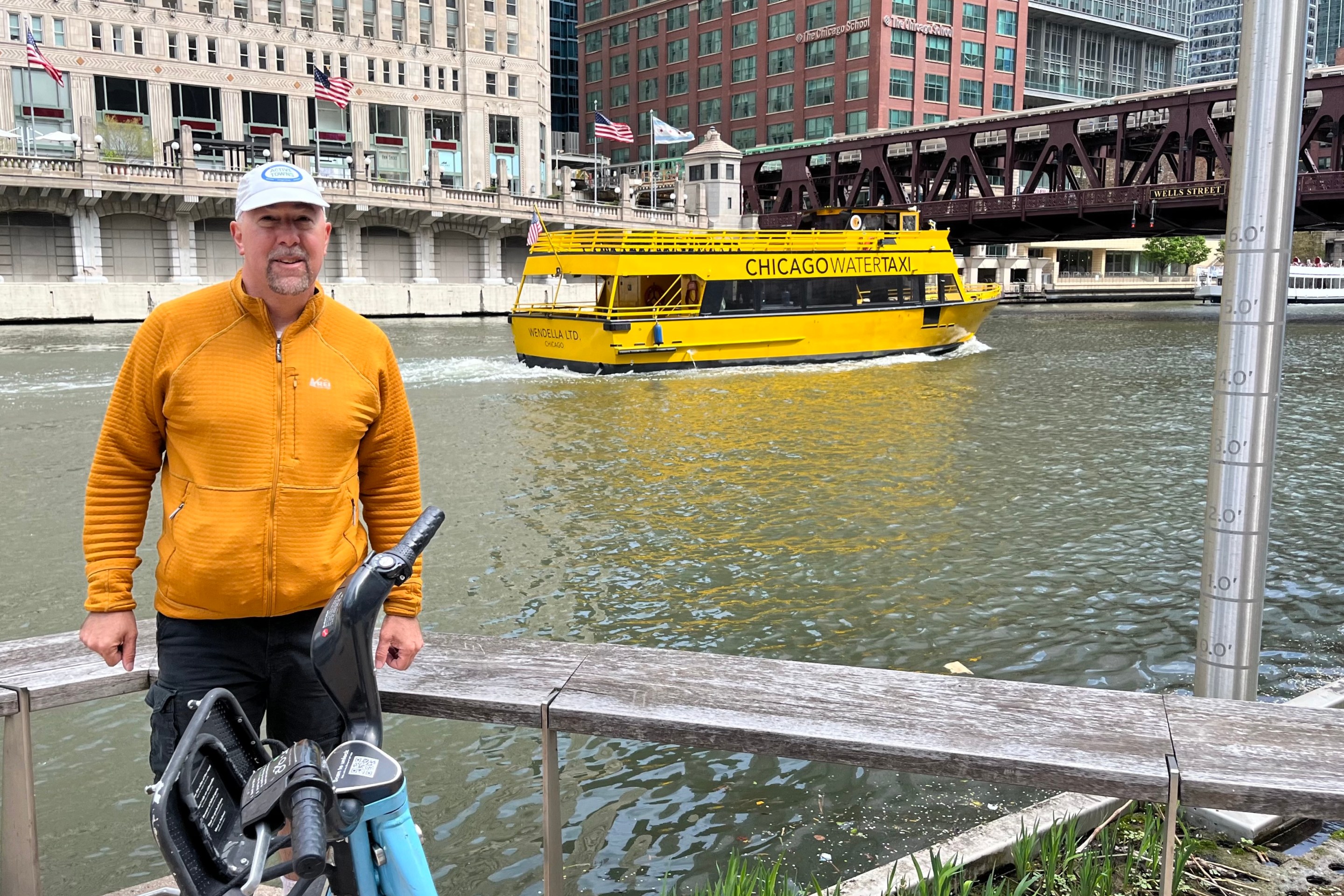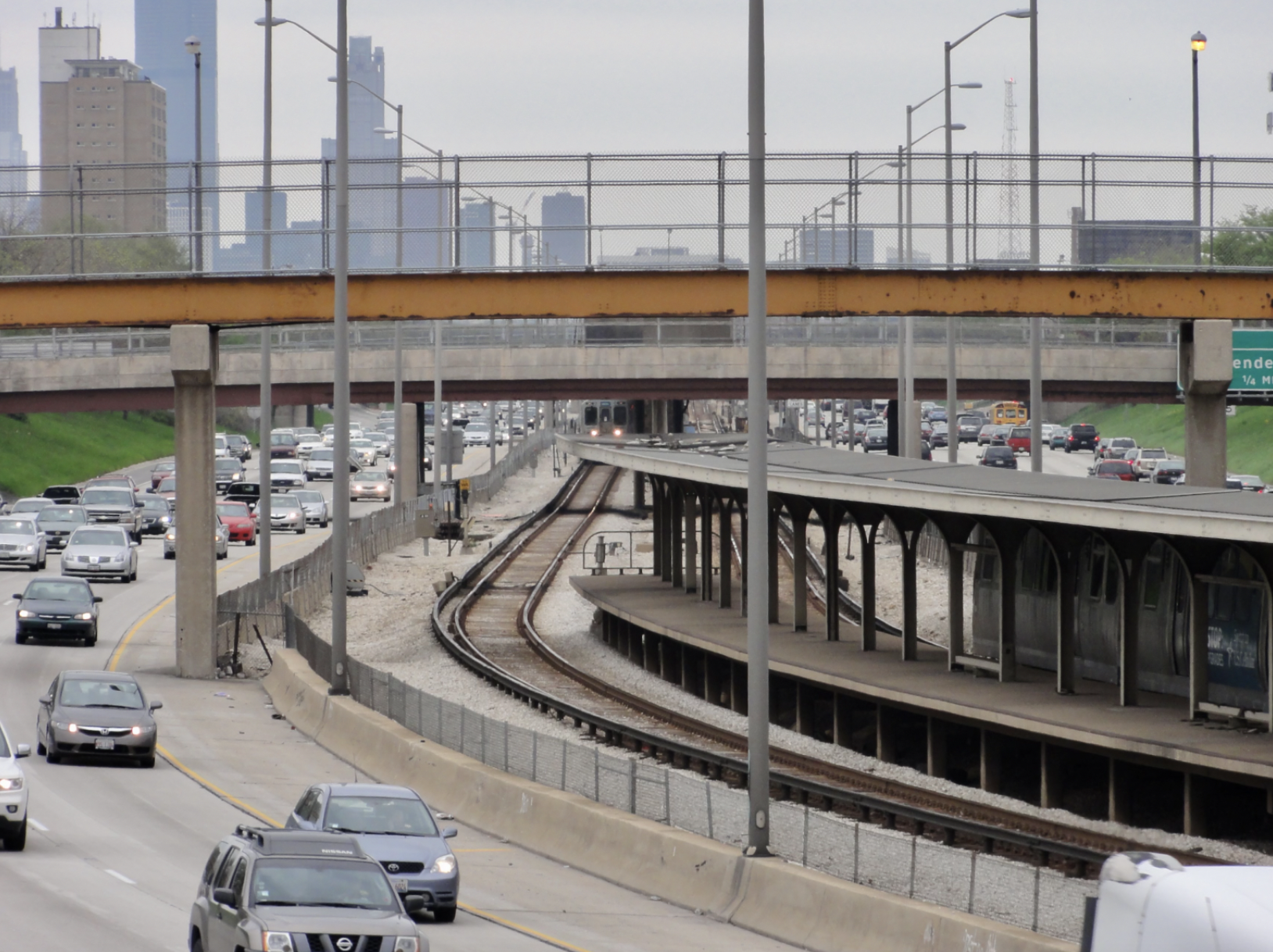The toughest part of the city’s effort to create bus rapid transit in the downtown East-West Transit and the Western/Ashland BRT corridors will be convincing Chicagoans that it’s a good idea to remove travel lanes on major streets to make room for dedicated bus lanes. Help arrived today in the form of a $1.2 million Rockefeller Foundation grant that will be used to build local understanding and support for BRT in Chicago, as well as Boston, Nashville and Pittsburgh.
The funding, which will be shared by each city as needed, will support research, communications and community outreach efforts. The public affairs agency Global Strategy Group is managing the grant for Rockefeller; In Chicago GSC is partnering with the local firm Grisko LLC to run the campaign. Grisko will work with the CTA and Chicago Department of Transportation, plus various nonprofits and transportation advocacy groups, to engage local businesses and residents, and raise awareness of the benefits of BRT. (Disclosure: a separate grant from Rockefeller provides funding to the Chicago Community Trust that in turn funds Streetsblog Chicago.)
This is the latest of several grants from Rockeller to bolster BRT efforts in Chicago. Prior to today’s announcement, the foundation had provided nearly $1.8 million towards the city's BRT program for several facets of the program, including technical assistance for a system network plan and overall coordination; branding and community outreach; and land-use planning around the Western/Ashland corridor.
"I thank The Rockefeller Foundation for its continued support of Chicago's Bus Rapid Transit efforts,” said Mayor Rahm Emanuel in a statement. “With this latest commitment, there is a real opportunity to collaborate among cities, and share information on what is important to various stakeholders as we all undertake this forward-thinking project. We want BRT service to be equitable, high-quality, and welcomed by residents and businesses. The Rockefeller Foundation's support is key to these efforts."
For more details about the new grant, and Rockefeller’s continuing support for BRT in Chicago, I called the foundation associate director Benjamin de la Peña.
John Greenfield: Why is Rockefeller interested in promoting bus rapid transit?
Benjamin de la Peña: We have two big goals. It’s about growth with equity, and resilience. We’ve been doing transportation work in this country for the last five years, trying to change the way we choose and fund transportation projects at the federal level and also at the state level. One of the things that’s clear to us is that Americans are vulnerable when it comes to transportation. Half of the country doesn’t have any transportation other than having to own private cars. Lower-income households tend to spend 30 percent or more of their household income on transportation because they have to buy a car and pay for it and pay for gas. And so when gas prices swing they’re very vulnerable.
On the flip side of that, it takes us forever to build mass transit. It takes literally decades to get a transportation project going. The appeal of bus rapid transit is that you can deliver very high quality transit in two to three years. Some cities have done it in less time. It’s very reliable, dependable public transit that has all the great elements of fixed transit but all of the flexibility of bus. And also in this era of declining resources, we need to get more bang for our buck. You can build gold-standard BRT for a fraction of the cost of fixed rail.
JG: What can we expect to see Grisko doing with this grant money?
BP: They will start out by conducting an opinion survey. What happens after that depends on what we find out from the survey. So they’ll develop a strategy on how best to talk about BRT, and they’ll work closely with the existing BRT steering committee and its members, building on the great work that the Metropolitan Planning Council, the Active Transportation Alliance, the Chicago Community Trust, the Urban Land Institute and the Chicago Architecture Foundation have been doing around educating Chicago about bus rapid transit.
JG: By funding BRT projects in these four cities, what effect do you hope to have on other U.S. cities?
BP: We want to raise the profile of bus rapid transit and educate people on what BRT is. Because whenever it’s brought up in transportation meetings, people have only a vague idea of what it is, and it’s hard to have a conversation on what BRT can deliver unless people have a clear idea of what BRT is. We also want to learn about how to do this, how to talk about BRT and where is the public at, and how do you move public opinion and how do you mobilize people for higher quality bus rapid transit.
Chicago is one of the most visited cities in the U.S., so having gold-standard BRT on Western or Ashland would mean that many people outside Chicago might see it when they visit and say, “I can see how that works and I would want that in my city.”





